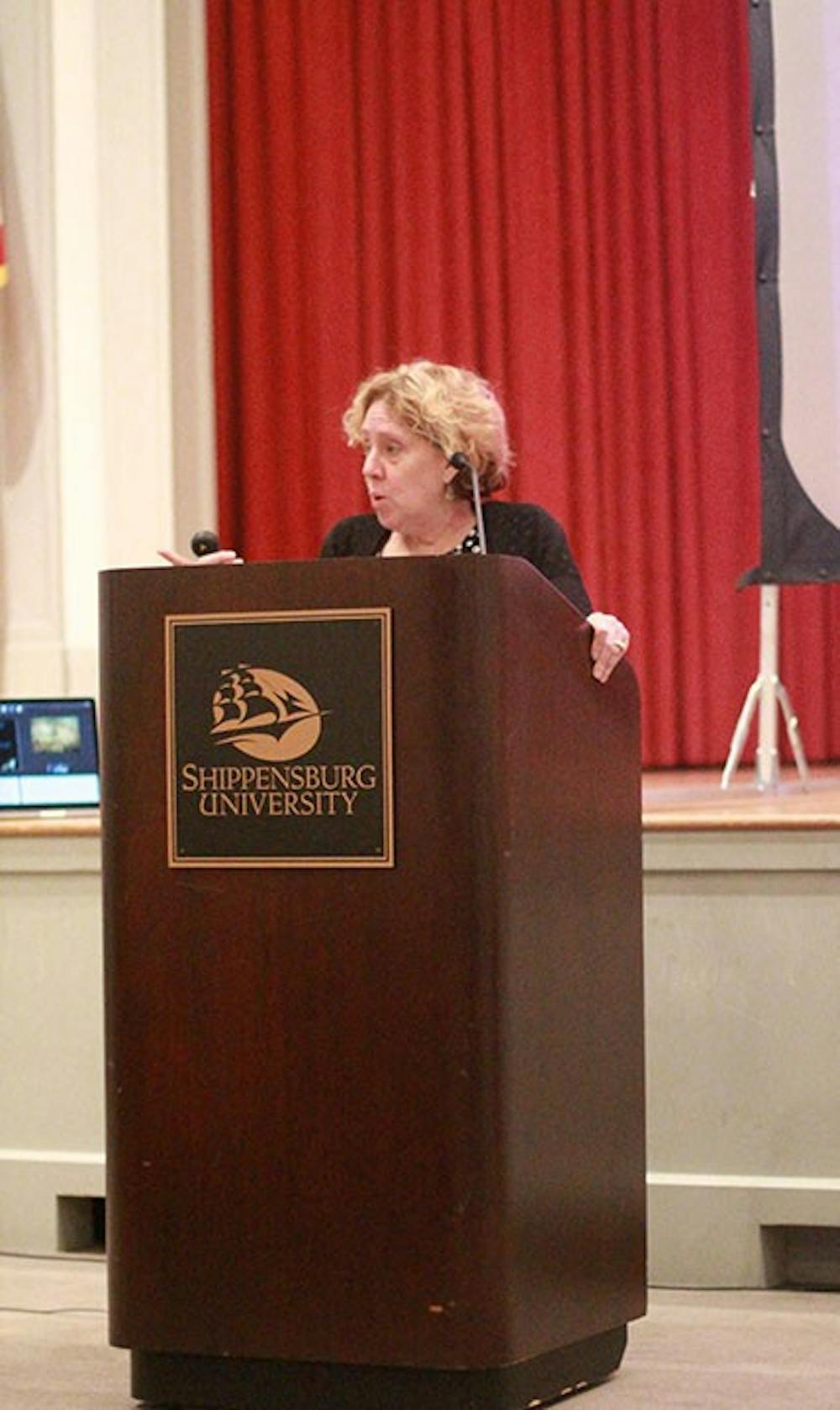Students and faculty convened in Shippensburg University’s Old Main Chapel on Thursday evening to listen to Robin Fleming’s lecture on how the end of the Roman Empire in Britain affected plants, animals and places.
Fleming has had three books and many articles published, with her most recent book titled “Britain After Rome: The Fall and Rise c. 400 to 1070.” Fleming began by explaining the late Roman material culture regime and its eventual downfall.
“I’m interested because Britain experienced a really stunning set of economic and political dislocations,” Fleming said.
These dislocations, however, were not represented in texts when Fleming was doing research for one of her books. She said many historians focus on the political changes that result from the fall of the Roman Empire because it is documented in texts.
During her lecture, Fleming used the introduction and disappearance of plants and animals in Britain during and after the Roman Empire to examine the transformation of the relationships between people.
For instance, Fleming said plants and animals influence both landscaping and food. Humans, plants and animals have a mutual dependency on each other. During the Roman Empire, there was a large influx of alien plants in Britain. These plants included cilantro, cabbage, cherries and strawberries. These plants transformed into common kitchen staples, according to Fleming.
Certain crops particularly influenced the lifestyles of the British. Cereal cultivation was a main source of food for Britain before Rome, but the Romans wanted cereal from Britain to feed Roman administrators and military. This resulted in many fields, mills and barns to be constructed.
New animals and insects were also brought to Britain by the Romans. Beetles would often be found in grain storage buildings, Fleming said. Black rats, mules, pheasants, mice and chickens were other animals brought into Britain. Chickens had been seen in Britain before the Romans came, but only the elite owned them, Fleming said.
After the Roman Empire collapsed, Fleming said many of the plants and animals did not survive. There was no longer a need for a surplus of cereal cultivation so the landscape changed drastically. Because of a decrease in farming, many farm animals, such as mules, died out. Many people moved away from gardening. Certain materials are needed to garden, but they were no longer needed after the Romans left, Fleming said.
SU history professor David Godshalk said Fleming showed how the timeline of history is not linear, but rather a series of ups and downs.
“She gave a wonderful talk emphasizing the role material culture plays in societies and how it shapes our daily lives.”


The Slate welcomes thoughtful discussion on all of our stories, but please keep comments civil and on-topic. Read our full guidelines here.